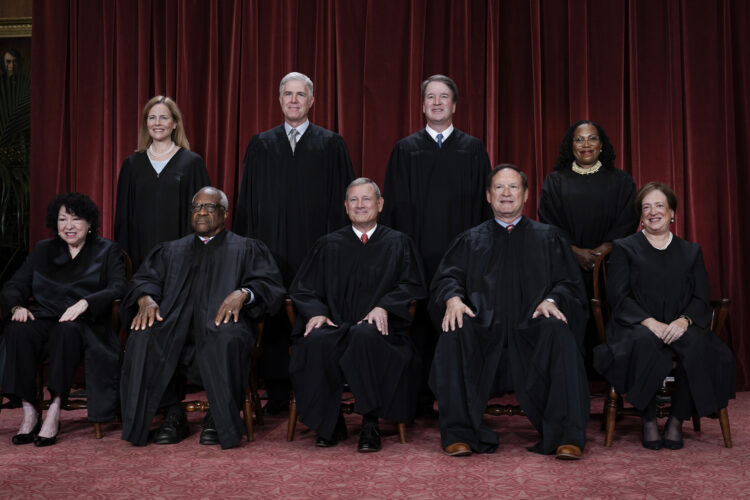The United States Supreme Court denied the decision of a federal appeals court on Monday that permitted underage girls to seek permission from a court to undergo an abortion without the permission of their parents.
Associate Justice Ketanji Brown Jackson was the only member out of the nine justices to dissent against the ruling, according to The Epoch Times.
The case, Chapman v. Doe, court file 22-312 vacates the ruling of the appeals court based upon the precedent of United States v. Munsingwear, Inc- one that enables the court to vacate a ruling that has been rendered moot without creating a new precedent.
This case stems from a lawsuit alleging that clerk Michelle Chapman violated the rights of a pregnant 17-year-old with the alias Jane Doe. Doe was required to get parental consent from at least one parent to obtain an abortion, under Missouri law.
However, the law also allows minors to bypass this requirement by going to court and being granted permission after a hearing. In 2018, Doe went and sought a judicial bypass where Chapman denied her request, abiding by Missouri law.
Doe then went to Illinois instead, received a judicial bypass, and received the abortion soon after.
The minor filed a civil rights lawsuit against Chapman claiming her 14th Amendment Rights were violated.
Missouri officials appealed to the Supreme Court, where both parties eventually agreed that the case was “moot,” according to the dissent. The case was then sent back to the appeals by the Supreme Court to dismiss the case as moot.
The only justice to have voted against her constituents was Justice Jackson, who then expressed disappointment towards her fellow justices and how they handled the matter.
According to Jackson’s argument, though abortion provides the foundation of dispute, the legal issue that Jackson wrote about in the case, there is a broader scale here than just abortion alone, applying to other sorts of cases. According to Jackson, it may blur the lines at how to treat cases that become moot.


















Add comment